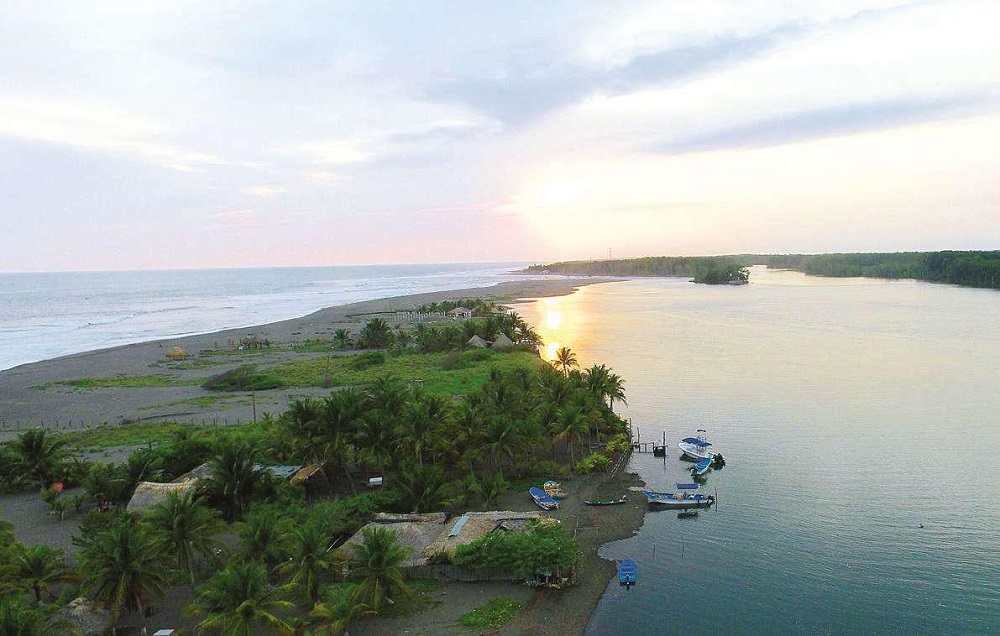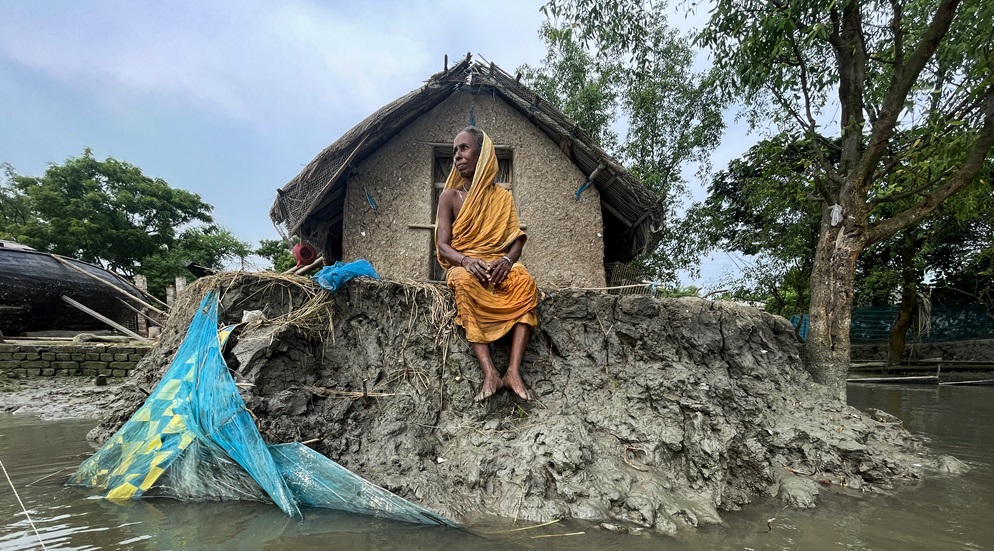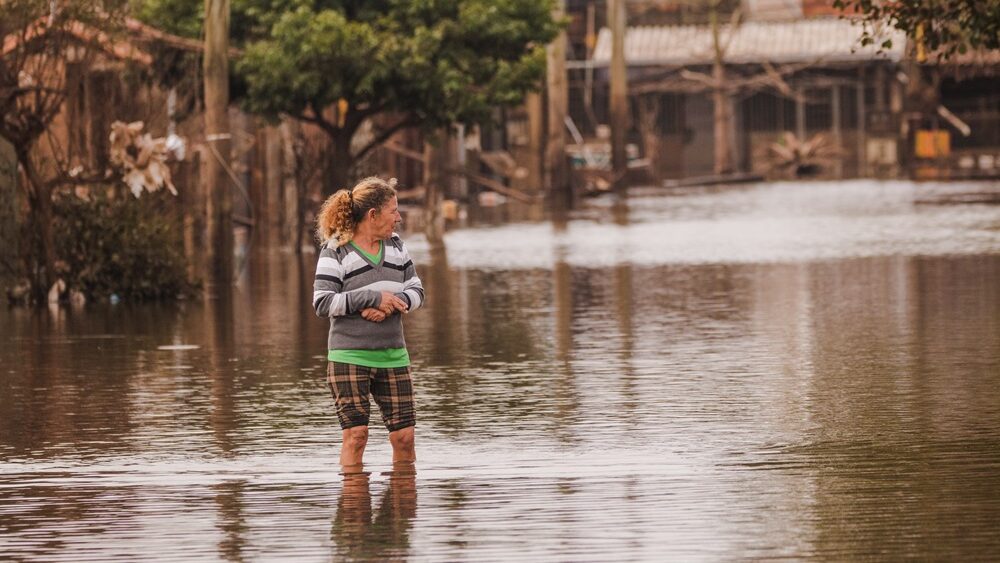Statement by Mr. Andrés Pérez Esquivel,
Director of International Affairs, National Directorate of Migrations
Ministry of Interior, Republic of Argentina,
on the Occasion of the 74th Session of the United Nations High Commissioner for Refugees (UNHCR) Executive Committee
The side event “Protecting people displaced across borders in the context of the impact of climate change and disasters” by UNHCR and the Platform on Disaster Displacement was held on 12 October 2023 in the margins of the 74th session of the Executive Committee of the High Commissioner’s Programme (ExCom). The event aimed at raising awareness on the protection of people displaced across borders in the context of climate change impacts and disasters. The discussion focused on the applicability of existing instruments to provide international protection for those in need, as articulated in UNHCR’s legal considerations regarding claims for international protection made in the context of the adverse effects of climate change and disasters (2020), as well as sharing examples of State practices in this area. Mr. Andrés Pérez Esquivel participated in the panel discussion at the Palais des Nations.
——–
Thank you very much, dear partners, for this opportunity to present part of Argentina’s initiatives related to disaster displacement.
In the Americas the estimate of the last decade (2013-2022) is more than 2 million annually weather-related displacements, mostly caused by storms and floods (IOM, 2023).
In this context, from Argentina we launched a humanitarian visa program for people displaced by socio-natural disasters to cooperate with 23 countries of Latin America and the Caribbean. This initiative not only addresses the consequences of disasters related to climate change, but also provides a durable solution to those who had to leave their homes as a result of these events. Argentina, and many countries before, have granted visas for humanitarian reasons to persons displaced by socio natural disasters but who were already in an irregular situation in other territories, that is, it was applied ex post facto and extraordinarily. On the contrary, this is an innovative policy because it has an active, preemptive, and permanent nature offering continued cooperation to 23 countries of Central America, the Caribbean and México before a disaster occurs from now on, offering a planned response to the need of populations who could lose everything overnight, and a durable solution to their situation.
The visa program offers an initial residence period of three years and beneficiaries can apply for permanent residence afterwards. It targets both internally and cross border displaced persons, whether they have a regular migratory status or not in the country where they reside. The disasters covered are only the ones caused by sudden on-set hydrometeorological events (hurricanes, tornadoes, extreme rainfall, and floods) and/or a geophysical event (earthquakes, tsunamis, landslides/rockfalls and volcanic emissions). Displacements covered by the program must have originated in areas declared emergency zones by the governments of the countries involved, and the identification of cases in the field is in hands of IOM and UNHCR offices.
The program also strengthens an interagency, multi stakeholder and participatory approach guaranteeing sustainability over time with IOM, UNHCR, ICRC and civil society. Considering the program’s objective to provide durable solutions to people forcibly displaced, the integration process of beneficiaries will be accompanied by community sponsorship organizations that will provide economic and emotional support for the beneficiaries of the visa for twelve months, helping those who benefit to achieve self-sufficiency in Argentina.
The policy was created by the National Directorate of Migrations through Provision N° 891/2022 applying the humanitarian visa mechanism already included in our Migration Law 25.871 (article 23rd, subsection m), recognized by its human rights approach to migration.
To coordinate and put the Program into operation, the Argentine government set up a Working Group of the Environmental Humanitarian Visa Program, which involves the participation and coordination of the National Directorate of Migrations, General Directorate of Consular Affairs of the Ministry of Foreign Affairs, IOM, UNHCR, the International Committee of the Red Cross, the Argentine support network for community refugee sponsorship and the Episcopal Commission for the Pastoral Care of Migrants and Itinerants.
The Working Group approved a Standard Operating Procedure, which establishes the work process and the cooperation and coordination mechanisms between the different actors involved in the implementation of the Program; the Sworn Declaration for applicants; and the Sworn Declaration of the Sponsor of Application for Entry Permit. Through our UNHCR regional office we will be sending you all the disposition and complementary material in English.
There has been some emergencies and disasters, and we are talking at the moment with some countries, but we are in pilot mode. Depending on the interest of those countries in joining we might receive some families in the last quarter of 2023 and during 2024.
At this point, we have learnt that there are two main challenges for this policy to be successful, in which UNHCR can give us enormous help:
- The cooperation dialogue process. Obviously, it is not possible for UNHCR and IOM national offices to begin the identification of cases in field if the affected Government is not on board with the program. The lack of knowledge about the program and some difficulties understanding this new experimental policy has become an obstacle. UNHCR can help us a lot here supporting the cooperation process with these 23 states before, during and after any disaster occurs.
- Funding. As we did in the successful Siria program before, this program depends only on international cooperation, Argentina’s State facilitates human resources but does not fund it. This is important because considering the preemptive nature of the program, community sponsoring organizations have expressed the challenges of identifying, training, and fundraising for sponsor groups without clear knowledge of exactly when a family is going to arrive. Therefore, a financial reserve to kick-start the compromise of sponsor groups is key to engage them, among other aspects of the program like airplane tickets, capacity building, etc.
Conclusions
From Argentina we launched a policy for humanitarian protection, planned relocation and durable solutions with a multi stakeholder alliance. We presented it as a pledge (ID GRF-03257) to advance de Global Compact on Refugees as part of the Multistakeholder Pledge: Climate Action and Finance, and we also want to invite other countries to give us some feedback, to replicate or even improve this policy. We cannot thank enough to UNHCR, IOM, ICRC and the PDD for all your support and we are happy to be creating with you something new and challenging with the common goal to leave no one behind.
Thank you very much.





